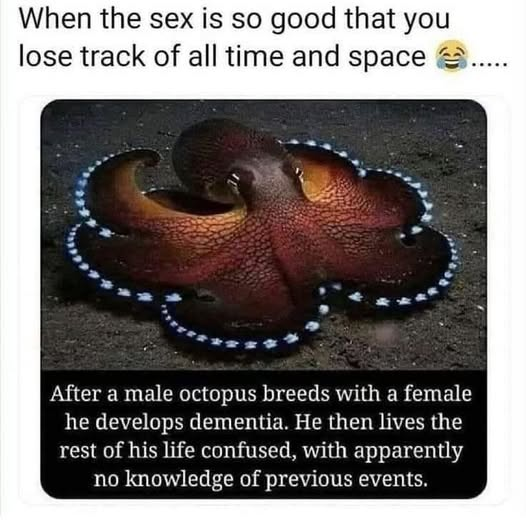this post was submitted on 13 Feb 2025
878 points (99.1% liked)
Science Memes
12310 readers
1750 users here now
Welcome to c/science_memes @ Mander.xyz!
A place for majestic STEMLORD peacocking, as well as memes about the realities of working in a lab.

Rules
- Don't throw mud. Behave like an intellectual and remember the human.
- Keep it rooted (on topic).
- No spam.
- Infographics welcome, get schooled.
This is a science community. We use the Dawkins definition of meme.
Research Committee
Other Mander Communities
Science and Research
Biology and Life Sciences
- [email protected]
- [email protected]
- [email protected]
- [email protected]
- [email protected]
- [email protected]
- [email protected]
- [email protected]
- [email protected]
- [email protected]
- [email protected]
- [email protected]
- [email protected]
- [email protected]
- [email protected]
- [email protected]
- [email protected]
- [email protected]
- [email protected]
- [email protected]
- [email protected]
- [email protected]
- [email protected]
- [email protected]
- !reptiles and [email protected]
Physical Sciences
- [email protected]
- [email protected]
- [email protected]
- [email protected]
- [email protected]
- [email protected]
- [email protected]
- [email protected]
- [email protected]
Humanities and Social Sciences
Practical and Applied Sciences
- !exercise-and [email protected]
- [email protected]
- !self [email protected]
- [email protected]
- [email protected]
- [email protected]
Memes
Miscellaneous
founded 2 years ago
MODERATORS
you are viewing a single comment's thread
view the rest of the comments
view the rest of the comments

According to the article the females don't fare any better either.
I didn't know this about octopi, what's the point, evolutionarily, to self destruct after reproducing?
There is no point, evolution is about successful reproduction and everything else is just random chance.
If a evolutionary tweak happens that gives your off spring better chances, but your arms fall off after sex then it'll probably perpetuate.
No that's absolutely not true, every part of evolution happens for a reason and those we don't know, we research until we find out why
I think the point the other guy is pointing out, is that good and bad evolutionary traits are often connected - or more helpfully stated, evolutionary traits can have both benefits and drawbacks which don't immediately seem related to the same trait.
It's quite possible that octopi sex dementia is just a drawback to another trait which is very beneficial, so the dementia was just a bad aspect of a good trait that propagated forward. This happens all the time in different animal biologies.
No, that's what I am saying. They are saying that it's a random effect.
Everything about biology is a random effect. Even a mutation that's selected for wasn't planned; it just happened by chance. Like if you're an aquatic species maybe you'll end up being a strong swimmer over generations, but the water doesn't pressure you towards that on its own. You have to coincidentally develop flukes that make you a stronger swimmer before those traits can be selected for.
Sometimes traits that get passed down aren't beneficial at all because they don't make an impact on reproduction. Think of an animal that comes in many colors like a house cat or certain fish species. In such cases it's clear that the color of the animal doesn't have any bearing on its ability to reproduce, so a variety of colors are passed down for no particular reason.
No, what we call random is when it's unpredictable. The more unpredictable, the better "quality" of the random. Any generative process, and huge amounts of systems you use every day use random but systems emerge from the chaos. And no. Traits that aren't beneficial are extremely rare and we think it's because we are missing why it was useful.
That is not how your comment reads. It reads like you think every trait exists as an advantage and propagates because it is a benefit. Plenty of traits propagate as side effects, which is how their comment read to me.
Not really, and I think it's because any unnecessary trait is an extra cost. But you can have your belief or even think we were magiced by an all powerful entity
unnecessary traits might not always lead to extra cost, and even then, the extra cost might not always lead to extinction.
the extinction usually happens when a trait that represents a disadvantage in a sufficiently heavy competition for survival. If the competition is low enough, the trait may survive.